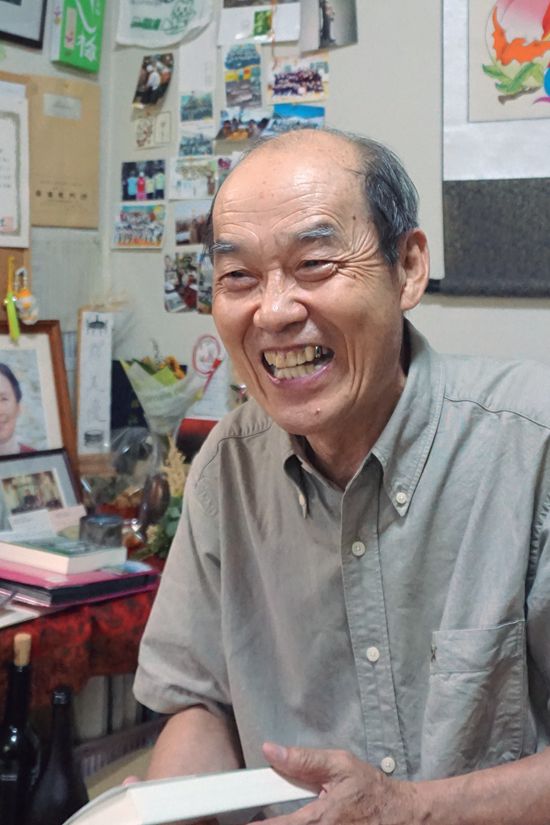The story of a Japanese war orphan
- By Li Jingrong
 0 Comment(s)
0 Comment(s) Print
Print E-mail China.org.cn, August 9, 2015
E-mail China.org.cn, August 9, 2015
|
Nakajima Yohachi, 73, a Japanese war orphan, self-publishes a memoir this August and draw a lot of attention from the media of China and Japan. [Photo: People‘s China] |
Nakajima Yohachi, 73, lives alone in Setagaya, a residential district of Tokyo. This August , he self-published a memoir "Kono Sei Aru wa" (I owe my life to these people) (この生あるは in Japanese and 何有此生 in Chinese). Launch ceremonies held in Beijing and Nanjing, drew a lot of attention from the media of the two countries, such as China's Xinhua News Agency and People's Daily, Japan's Asahi Shinbun and Tokyo Web. People's China, a monthly Chinese magazine, published an interview with him.
A sad childhood experience
Nakajima was born in Tokyo. At the age of one, his parents took him and his sister to Heilongjiang, northeast China, as members of the Japanese "pioneer group." In 1945, the family lost touch with the father, who served in the army, when Japan surrendered in World War II.
They became refugees, suffering from hunger and cold. In despair, his mother entrusted him to a Chinese friend, who went door-to-door to find Nakajima a new family. Finally, a village woman named Sun Zhenqin agreed to adopt him, even though she knew the child was Japanese. By that time, the boy was critically ill.
However, under Sun's care, he soon recovered. In the following 13 years, Sun endured no end of hardships, struggling to bring up the Japanese child. So did a succession of three foster fathers.
The first was a farm laborer named Chen Yugui. He died of illness when Nakajima was eight, and Sun got remarried. When Nakajiama turned 12, he suffered from serious illness again. His second foster father, Li Xiwen, took him everywhere in a cattle cart to try to cure him. Nakajima's third foster, Zhao Shusen, was a doctor and also treated him as his own child.
Speaking of his foster parents, Nakajima was so touched that his eyes filled with tears.






